Oriental, flowers, landscape
Vraag
Dear colleagues,
The collection of our museum holds several Delft objects such as a plate, a dish and a set of vases, that belonged to a famous Russian art collector Sergei Shchukin (1854 – 1936).
I would be grateful if you could help me with the attribution of those objects. In particular, about the dating and workshop of these items.
In case if the objects similar to ours are contained in your collection, I would be grateful if you might share this information whit me.
Best regards,
Olga Novikova
Curator of Russian and Foreign Ceramics Collection
The Ceramics Museum
Ostankino and Kuskovo State Museum and Nature Reserve
Afmetingen
height: 64, 0 cm
Collectie
publiekscollectie
Merk
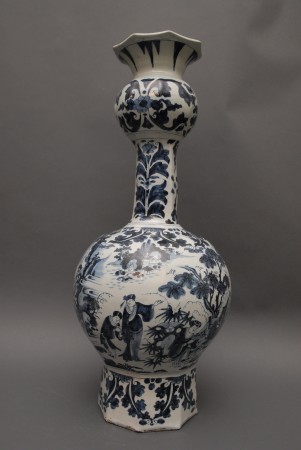
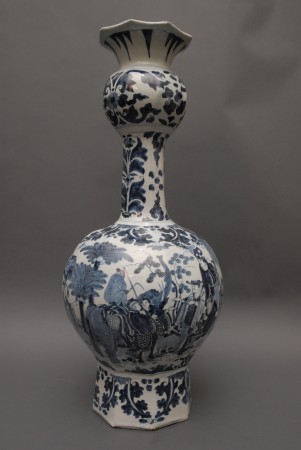
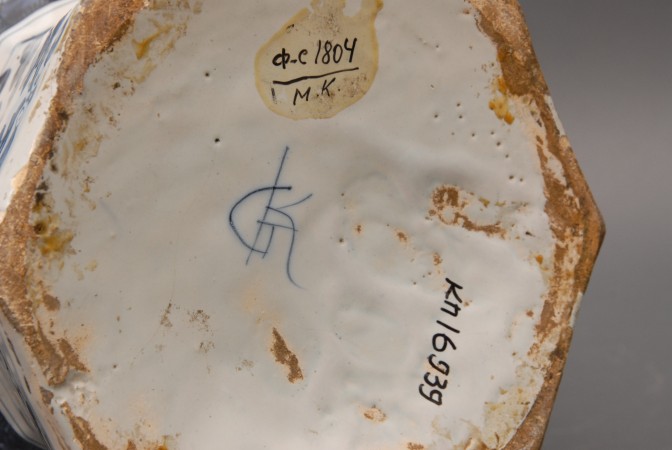








Reacties 10
This is a knob vase with Wan - Li decor from the period 1694 - 1700 from the De Dissel pottery in Delft. Mark CK (Cornelus van der Kloot). Since 1694, when van der Kloot was still working there, the financial management was already in the hands of Adriaenus Kocks of the Greek A. In 1701, all goods, including the examples, were taken over by the Greek A. This explains that the Wan- Li decor by Cornelus van der Kloot was still used until 1764, although with the original mark, being a D with a stripe or a drawbar underneath. I suspect there are experts here who can tell you more about this.
Dit is een knobbelvaas met Wan - Li decor uit de periode 1694 -1700 van plateelbakkerij De Dissel te Delft. Merkteken CK ( Cornelus van der Kloot ). Sinds 1694 - toen van der Kloot er nog werkzaam was, was het financieel beheer reeds in handen van Adriaenus Kocks van de Griekse A. In 1701 werden alle goederen , inclusief de voorbeelden overgenomen door de Griekse A. Hieruit is te verklaren dat het Wan-Li decor Van Cornelus van der Kloot nog tot 1764 werd gevoerd, weliswaar met het originele merk , zijnde een D met eronder een streep of een dissel. Ik vermoed dat er hier experts zijn die meer hierover kunnen vertellen.
The attribution from Frank is unfortunately not correct. The mark is an intertwined G and K. This is for Gerrit Pietersz. Kam, eigenaar Drie Posteleyne Astonne, 1679-1700.
This double gourd vase also exactly fits this maker, as it also bears his factory’s Chinoiserie style, colour and execution.
In reply to The attribution from Frank… by Jeroen Hartgers355
Thanks for the clarification. I'm learning a lot from this :-) However, a bit strange, because Gerrit Pietersz (son of Harmen Pietersz) is said to have already died (as a financial settlement shows) on October 24, 1624. Father Harmen Pietersz founded De 4 Roman Helden. Also I see Gerrit Kam en Pieter Gerritsz.kam as owners of De 3 Vergulde Astonnekens and not Drie posteleyne astonne.
Source: Delft pottery by Dr. C.H.de Jonghe. Nijgh & van Ditmar 1965
Bedankt voor de verduidelijking. Ik leer hier heel wat bij :-)
Echter wat vreemd, want Gerrit Pietersz ( zoon van Harmen Pietersz) zou ( zoals uit een geldelijke regeling blijkt ) reeds overleden zijn op 24 oktober 1624. Vader Harmen Pietersz richte De 4 Romeinse Helden op. Ook zie ik Gerrit Kam en Peter Gerritsz.kam als eigenaars van de 3 vergulde Astonnekens en niet de 3 Posteleyne Astonne.
Bron: Delfts aardewerk door Dr. C.H.de Jonghe. Nijgh & van Ditmar 1965
Note: The CK mark is actually for Cornelis Koppens, who owned factory “De Metaale Pot”between 1724 and 1757. I would like to suggest using the Merkenindex on this website, as it is very accurate!!
https://delftsaardewerk.nl/ontdekken/merkenindex
In reply to Note: The CK mark is… by Jeroen Hartgers355
These are according to "Delft Pottery" by Dr. C.H.de Jonghe uses the brands of De Metale Pot over the respective years. So CK does not appear here. It's strange that this publication and this website contradict each other. Or perhaps complement each other? Curious what the experts know about this.
Dit zijn volgens "Delfts aardewerk" door Dr. C.H.de Jonghe de gebruikte merken van De Metale Pot over de respectievelijke jaren heen. CK komt hier dus niet in voor. Wel vreemd dat deze uitgave en deze website elkaar tegenspreken. Of elkaar aanvullen misschien? Benieuwd wat de experts hierover weten.
Similar vase:
https://collection.powerhouse.com.au/object/176793
I would strongly advice not to use the books of "Delft Pottery" by Dr. C.H.de Jonghe or any other books for looking up marks. There are quite often incorrect because they are simply too old. Use the books from Gemeentemuseum Den Haag instead. Most are (partly) written Marion Van Aken Fehmers. They have newer insights and research that compares trends, colours and dessins that can be easily matched to other marked items from the period.
https://delftsaardewerk.nl/verdiepen/7831-marion-s-van-aken-fehmers-ambassadeur-van-delfts-aardewerk
Thanks a lot for all the comments!
I fully agree with Mr. Jeroen Hartgers. He is a TRUE EXPERT! Advice IGNORE the, older, books ...many many mistakes. Even without the GK monogram the trained eye can see it is Gerrit P. KAM,
Verdict:
Analysis:
Merk:
Thanks to the top users for their responses!
Add new comment
Only logged in users can post comments
Log in or register to post comments